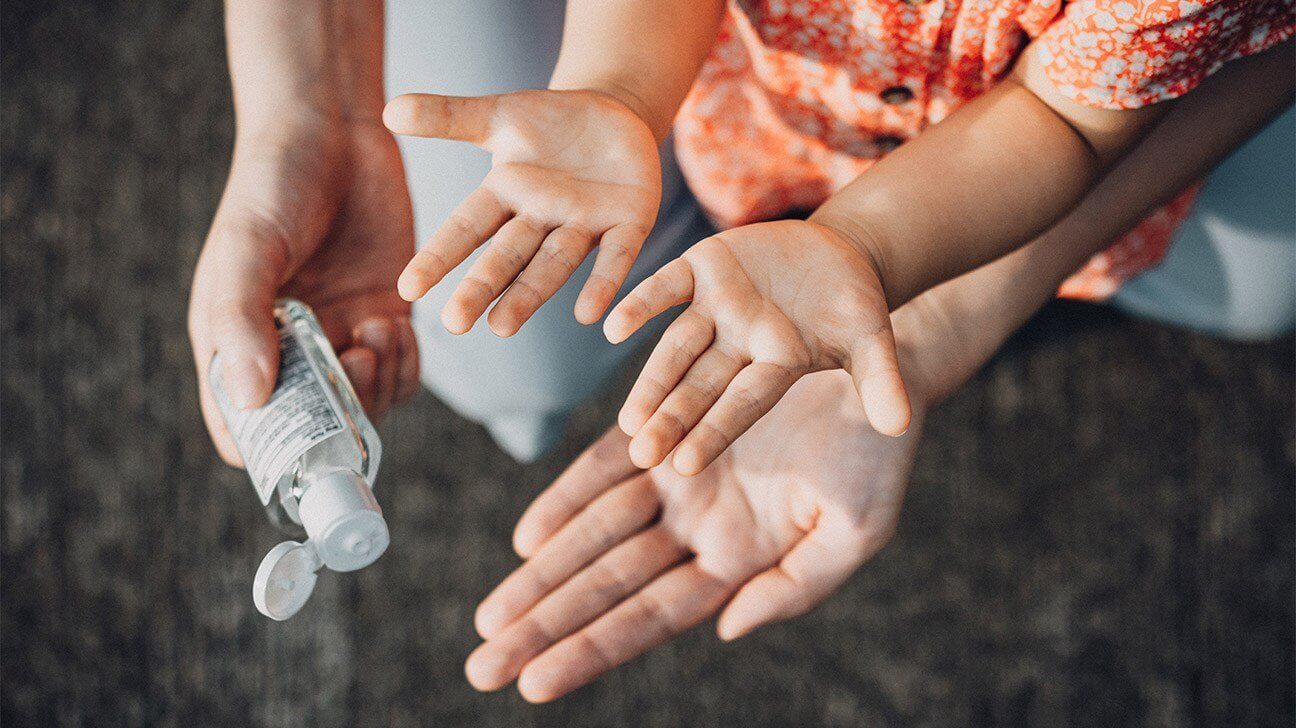
Hand sanitiser and hand soap may seem like interchangeable hygiene products, but they are meant for two different purposes. While it is smart to keep a bottle of hand sanitiser with you when you’re on the go, healthcare professionals and official bodies like the World Health Organization say that nothing beats a thorough hand wash with soap and water when it comes to killing germs and pathogens.
However, washing your hands isn’t always appropriate (or possible) and that’s where hand sanitiser comes in. But what exactly is hand sanitiser and how does it work to fight off germs, pathogens, microbes, and viruses like COVID-19?
The active (main) ingredient in most hand sanitiser products is isopropanol, more commonly known as rubbing alcohol, or ethanol, the main ingredient in alcoholic drinks. Alcohols have a long and well-established history as an effective disinfectant against many types of virus and bacteria (but not all of them!) as long as the cleaning solution has a large enough concentration of alcohol in it.
That said, most hand sanitiser dispenser are only comprised of around 95 percent* alcohol as the active ingredient. The other ingredients are added to provide fragrance, softening properties, and gel-like consistency. In some cases, manufacturers may even add ingredients such as foul-tasting compounds to deter users from drinking it.
*Some hand sanitisers can be as strong as 95 percent alcohol. These are commonly found in clinical settings and are extremely strong smelling.
As you may have guessed, it is the rubbing alcohol or ethanol in hand sanitiser that does all the work to kill bacteria and viruses on your hands. Alcohols have long since been known to kill germs by attacking their protective outer proteins and dissolving their membranes. This stops the germs from functioning, effectively killing them.
In alcohol-free hand sanitiser, a different active ingredient is used instead. This is usually Benzalkonium Chloride, a quaternary ammonium. This ingredient is just as effective at killing viruses, pathogens, and microbes as alcohol-based hand sanitiser.

Although using hand sanitiser can be effective and is better than nothing, all the experts still say that soap and water is the best way to practice good hand hygiene and keep yourself (and others) safe.
The important thing to know is that hand sanitiser is a disinfectant. Although it kills germs, it doesn’t physically remove them from the skin like soap and water does. Soap is a detergent, which is why it begins to create suds and dissolves both water and oil, simply washes them off your hands.
That being said, hand sanitiser still has its place. It’s the ideal thing to use if your hands aren’t visibly dirty and soiled but you still need to disinfect them. Examples of when you might opt for hand sanitiser over soap and water are when you’ve used public transport or have touched something which lots of other people have touched.
If you’re going to use hand sanitiser, make sure that you’re using it effectively.
Use enough hand sanitiser so that it covers the entirety of the fronts and backs of your hands and your fingernails. Thoroughly rub the sanitiser in so that there is no residue left at all. Don’t stop rubbing until it has all evaporated and your hands are completely dry.
Depending on the sanitiser and its alcohol content, this can take as long as anywhere from a matter of seconds to a minute. Avoid wiping sanitiser on your clothes—this can spread germs onto your clothes and even damage them if the sanitiser has a high enough alcohol content.
Hand sanitiser doesn’t tend to expire. There will likely be an expiration date on the bottle because it’s a regulated product, and regulated products must include certain information on packaging, including an expiration date.
Remember that alcohol is a shelf-stable chemical. This means that when it’s kept in a sealed container at room temperature, it’ll remain stable for a long time. Remember, there are certain spirits like whiskies and cognacs that are well over a hundred years old—these haven’t expired and nor will hand sanitiser!
Unlike back in March during the onset of the COVID-19 pandemic, hand sanitiser is now very easy to come by. It can now be bought widely online and in most high-street shops.
Here at HandStations.co.uk, we sell our own range of alcohol-based hand sanitiser and automatic hands-free hand sanitiser dispensers. We’ve also got alcohol-free nilaqua hand sanitisers from Nilaqua for those who require them.
If you’d like to find out more about our product offerings, visit our shop or contact us.
Emir Limam – E11 Group B.V. Netherlands – Fraudster
24 May 2023When to Take a Test After Covid Exposure?
30 January 2023A Rapid Antigen Test vs a Lateral Flow Test for Covid-19
30 January 2023